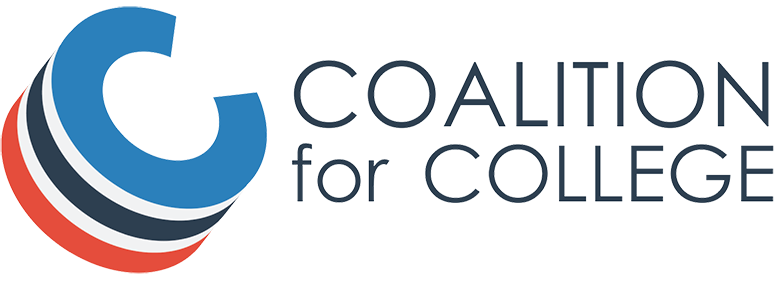Overview
The issue of standardized testing can provoke anxiety in even the calmest of college applicants. There is a lot to understand, and we hope this page will help you feel more comfortable with the landscape. That said, so much of testing is based on individual goals and priorities that a conversation with your Process Coach may be the best way to figure out your own approach. We welcome you to call, write, or set up a meeting to discuss testing at any time. Testing plans are a topic of every junior family meeting.
Test scores may play a significant role in the admission decision at some colleges, and to state otherwise would be misleading. In recent years, though, this landscape has changed dramatically. Many colleges and universities have now made testing optional. Still others, such as the University of Washington and The University of California system, have gone test blind. In every case testing will never be the sole piece of information used to evaluate your application, and only in very rare cases will they be the most important. Test scores matter, but they are just one data point in a file full of data and narratives that will ultimately represent you to the school.
There are many schools that are “test-optional,” meaning they do not require you to report your test scores. These schools really do mean optional – they feel that standardized test scores may not always represent a student’s academic potential and achievement.
The ACT and the SAT
Which One Is Right for You
Where testing is required, those colleges will ask you to submit scores from either the ACT or the SAT, which are similar tests created by rival test companies. Which one you take and submit is entirely up to you, as colleges will accept either one, and do not give preference to one over the other. The tests have many similarities, but a few key differences are:
- Pace: The SAT allows more time per question, while the ACT is more rapid-paced.
- Math: The SAT has a heavy focus on Algebra/Algebra 2 and has one section that doesn’t allow calculators. The ACT has a broader range of topics across Geometry/Algebra/Algebra 2.
- Science: The SAT doesn’t have a dedicated Science section, although they use scientific passages for some of their reading/writing/language activities. The ACT has an optional section dedicated to Scientific Thinking, that we recommend test takers include.
The single best indicator of which test is right for you is the practice test. The PSAT and the Practice ACT are the most accurate predictors of your eventual scores on the SAT and ACT, respectively. We recommend that you take advantage of the opportunities to take both practice tests. Most students will find that their scores are comparable between the two formats, and in that case, we encourage you to choose which exam to pursue further based on personal preference. In rarer cases, the practice tests will indicate that your performance is likely to be higher on one exam vs. the other, in which case we encourage you to focus your energy on that test.
More information about the ACT: https://www.act.org/
More information about the SAT: https://www.collegeboard.org/
Timing and Frequency of Testing
We recommend that you sit for your first official SAT or ACT in the winter/spring of your junior year. The average EPS student will take 2-3 total sittings of the SAT and/or ACT tests over the course of their Junior winter, spring, summer and Senior fall.
While students generally see modest increases in their scores the second or even third time they take a given exam, those increases tend to taper and flatten off after the third try. For that reason, we generally don’t encourage students to take the ACT or SAT more than three times.
Test Prep
In all likelihood, preparing for these standardized tests will have a positive impact on your score. Doing as little as familiarizing yourself with the format, style and pacing of the questions prior to your sitting is likely to have a positive impact. Further practice, of course, is likely to provide even further benefit. That said, there is a limit to how much time dedicated to test prep is truly advantageous, and each student’s results will vary.
There are free resources for test prep (such as Khan Academy) and there are paid options that range from quite inexpensive (purchasing a book and engaging in self-study and practice test sessions) to more expensive (taking a group class or working with a private tutor).
If you are going to invest significant time in test prep, we recommend that you make a decision to focus on either the ACT or SAT, rather than trying to prep extensively for both. If you have 20 hours to dedicate to test prep, you’re better off dedicating all 20 to increasing your score as much as possible on one test, rather than spending 10 hours per test and getting smaller gains on each.
We can’t prescribe a universal best strategy when it comes to test prep, but your Process Coach is a great resource as you consider your options in this area. If you find yourself feeling anxious about testing, please reach out so we can provide some counsel.
Registering for the tests
You must register yourself for all standardized tests. Schools cannot register students. Testing takes place at testing sites around the region and is not facilitated by EPS. Testing sites in the Seattle area fill and close very quickly. The sooner you register, the more options you will have of area testing centers. For that reason, we recommend that you register as soon as you have decided on a testing date. Trust us: the only thing worse than getting up on a Saturday morning to take the SAT is getting up two hours earlier to drive to Gig Harbor to do it.
When registering for the SAT, you will need Eastside Prep’s CEEB code: 480564.
Reporting scores
When it’s time to apply to college, you will need to send official score reports directly from each testing agency to your colleges. Those reports run about $13 apiece, so the price can add up if you are applying to several schools. To help manage these costs, both ACT and SAT offer four free score reports that can be sent at the time you take the exam. If you already know some schools to which you are likely to apply, it can save you money to take advantage of these free reports. Ultimately it’s up to you to decide whether to take advantage of those four included score reports. We encourage you to think about it (and discuss it with your Process Coach, if you’d like) prior to showing up for the test so you’re not making a last-second decision and adding to your stress on test day.
Each college has their own policy regarding score reporting. Most schools “superscore” (count your highest scores on each separate section of the test, regardless of whether those highlights were achieved on the same testing date). Some schools require that you report ALL scores you have earned on all standardized tests. Others allow you to send reports that only contain your best scores. Still others will allow you to report your own scores and wait to send the official report from the testing agency until you have been accepted and decided to matriculate. And finally, some schools are “test optional” and don’t require you to include standardized testing scores in your application at all. You will need to track this information carefully as you work on your applications to make sure you are providing each school with the information they require. Where discretion is permitted, your Process Coach is happy to strategize with you regarding which scores are advantageous to send and which you might choose to withhold.
Accommodations on ACT & SAT
If you have a diagnosed learning difference, you may want to request extended time or other accommodations for your standardized testing. Please contact Ms. Canter in our Learning Support Office as soon as you know this is something you want to pursue; time is of the essence as the process can take 8+ weeks to coordinate.
AP Exams
AP Exams are subject-specific exams given in May of each year. These exams are proctored at school, during the school day, at predetermined times on predetermined dates, and each one is about three hours long. For the purposes of college admission, AP exams are rarely required, but high scores can serve as additional credential on your application. AP Exams must be taken by May of your junior year in order to be included on your college applications.
At one time, it was popular to take AP Exams because a passing score (3 or higher on a scale of 5) would be treated by many colleges and universities as earning college credit for that course. These days, fewer schools offer college credit for AP scores. There are still some schools – mostly public institutions — that offer that credit. Some colleges use AP scores as a form of placement test to pass out of intro-level classes in math, English, foreign language, and other subjects.
When deciding whether to take AP exams, you should consider the time needed to prepare for them (typically you will need to engage in some additional study beyond what is covered in your classes), and the time in May when you will miss classes to sit for the exams. There is a fee of for each test you take. There is no real risk associated with earning a low score, as you are not required to report AP scores to your colleges. If you score poorly, you simply don’t mention you took the exam, and all you’ve lost is the time (and the $) you spent on the test.
Registration for AP Exams at EPS is handled through Ms. Swenson. She sends information out to all Upper School families each fall, and the registration deadline is at the beginning of November.
For more information about AP Exams: https://apstudent.collegeboard.org/home
Accommodations on AP Exams
To request testing accommodations on AP Exams, please see Ms. Henningson. The deadline to submit your request and all supporting documentation is generally seven weeks prior to the deadline to register for the test, so this will require advance planning.
For more information about accommodations on the AP Exams: https://apstudent.collegeboard.org/takingtheexam/testing-accommodations




